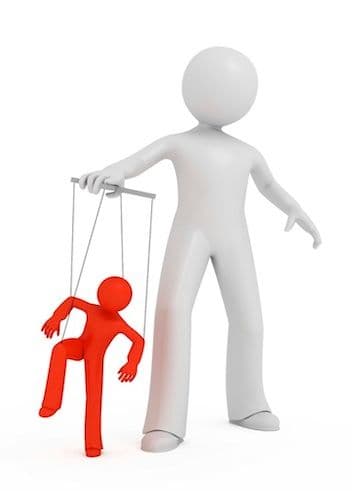
10 Signs Your Flatmate Relationship is Toxic
1. Controlling
Some like to go with the flow, while others take the reins and don't back down.
If your roomie always has to have everything just so, that's fine to an extent. (Honestly, who doesn't prefer their own way of doing things?) This can become problematic if their uncompromising behavior starts to affect how you live. This, too, likely has nothing to do with you and your household habits; rather, something about you could be “triggering their behavior.” It’s not up to you to solve their aggression — it’s up to your flatmate. And remember: It’s your home, too.
If you're looking to find compatible flatmates securely, check out how iROOMit Flatmates & Rooms for Rent works to learn more!

2. Super Needy
On the other side of the spectrum, you might come across people who need a little more than you can give them. These types are often referred to as "emotional vampires But instead of sucking blood, they suck everything they can get out of you until you're mentally exhausted. They can depend on you for a social life, or even all their emotional support. If they don't have other people they can count on, or even ways to help themselves, that can be exhausting and overwhelming.

3. Bring Out The Worst In You
The key to a good romantic relationship is to find a partner who makes you feel like the best version of yourself. It’s a rule that can be applied to any person in your life — especially if you're going to live with them.
When you hit it off with someone, it's easy to adapt to their behaviours without meaning to. If your roomie's favourite Friday night activity is to round-robin happy hours in the city until they’re plastered, for instance, and you find yourself raising multiple glasses when, really, you'd rather be home watching Euphoria, something's not right there.

4. Make You Feel Bad About Yourself
You don't have to be best friends with your flatmate to coexist in peace, but when a roomie becomes your nemesis, it's time to either hash things out or find a new home.
The key here is to notice how you feel when you’re around your flatmate. Do you feel bad about yourself when they’re around? When a flatmate becomes manipulative, in the sense that they're constantly "demeaning you as a person" or "creating self-doubt within you," it tends to be a red flag in terms of speaking to their conflict resolution style. It may not have anything to do with who you are at all, but it's definitely not something you should accept, either.

5. Emotionally Unstable
Everyone has emotions, and they’re not always rational. Emotional instability, however, is when someone expresses their feelings in an explosive way (such as angry outbursts) or when it starts to affect their health.
Oftentimes when a person is toxic, they aren't able "to recognize how any of his/her behaviors might have impacted you," especially when the toxicity stems from their emotional state. The best thing you can do is be there for your flatmate when they need you, but know when to take a step back when their feelings either start to affect yours, or are taken out on you.

6. Anything For Attention
Someone who seems to do anything for attention, including talking about you behind your back, sharing your personal information with others, or being flirtatious with your partner, is a red flag at best. It’s a matter of poor boundary setting, and it’s best to address the situation before it gets out of control.
This doesn't mean you have to hash it out with an attitude and a grocery list of your flatmate’s wrong-doings. Calmly sit them down and let them know their behavior is causing a rift. Hopefully they'll hear you out and re-evaluate their actions.

7. Don’t Care About Your Boundaries
Figuring out how to deal with a flatmate who is inconsiderate of your boundaries can be exhausting. Perhaps you’ve lived with someone who seems like the perfect flatmate — except for the fact that they have this annoying habit of blasting music from their fancy Bose speakers at unreasonable hours, and the noise is super disruptive to you. Ideally, you and your flatmate would’ve had a discussion about boundaries at the start of living together, but let’s face it: which is why it sometimes falls through the cracks.
Now, let’s say your flatmate’s late-night music habit is really starting to drive you mad. If they know it bothers you, and they really couldn’t care less — it might be time for you to have a roomie breakup. At the end of the day, we want our homes to feel as comfortable and calm as possible.

8. Unwilling to Compromise
Flexibility and openness are among the most important. Life changes, sometimes quickly, and our ability to adapt to these changes is an important indicator for success in relationships and in life.
If your flatmate refuses to make compromises over things like cleanliness standards and when it’s appropriate to have guests over, that spells trouble. If a person has attempted to be open with their flatmate about their thoughts and feelings, and the flatmate refuses to compromise over small things, this is not a good sign. Empathy towards others, whether that is a flatmate, friend, or romantic partner, is important if the person values the connection. An unwillingness to compromise shows a lack of empathy about the other’s needs, and can lead to much frustration and anger. If you find yourself in this situation, ask yourself: Is this really someone I want to live with?

9. Can’t Apologize
If they can never admit that they’re wrong or say sorry, they’re probably a toxic flatmate. The reason that that’s harmful is they’re probably going to blame all of their problems on you. Apologies can be very reparative and restorative for relationships, so your relationship will be missing out on that and your flatmate probably won’t take as much accountability for their behavior and change their behavior because they can’t admit that they were wrong.
If your flatmate truly respects you and wants to have harmony at home and in the relationship, they will respect your perspective when you’re upset.

10. They’re Reactive
Someone who yells or snaps at you and generally responds from a place of anger will ultimately create a toxic living environment. Instead of taking in the situation, thinking about it, and then responding, they just react. It’s a sign that they’re not able to regulate their emotions, They’re attempting to regulate their own emotions through how they treat you, treating you more negatively, and it sort of makes them transfer the negative energy onto you. In a healthy relationship, they would be able to talk to you in a calm and respectful manner and explain what it is about the situation that is upsetting them.
